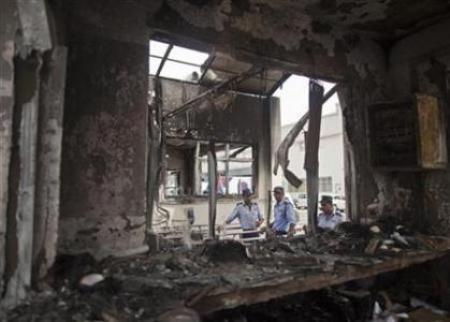
The lockout at the Manesar plant of India's largest automobile manufacturer, Maruti Suzuki India Limited (MSIL), is an inevitable consequence of the breakdown in management-worker relations that climaxed in the death of a senior executive – Awanish Kumar Dev, the plant's human-resources manager – in mob violence on Wednesday.
Almost 100 other people, largely from management, were injured and the plant suffered extensive damage from arson.
This highly visible and tragic instance of union-led violence casts a pall on Gurgaon district's reputation as a safe destination for industry, and further complicates India's attempt to scale up its manufacturing sector.
...
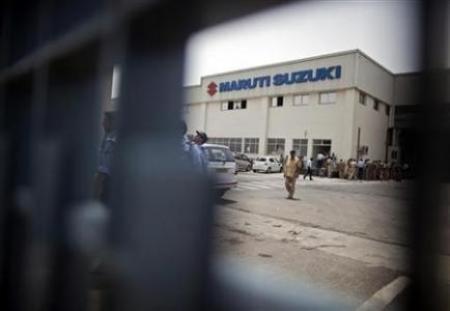
While the primary responsibility for violence rests, always, with its perpetrators – in this case, the rioting workers – there is considerable blame to go around.
The company, the state and India's trade-union movement have to take their share of responsibility, too.
Maruti's share price suffered heavy losses after news of the violence broke, and it is expected that production of its flagship Swift and DZire models is going to be considerably delayed.
That things have been allowed to come to this pass is a sign of a distance between management and workforce, which reflects poorly on the former.
...
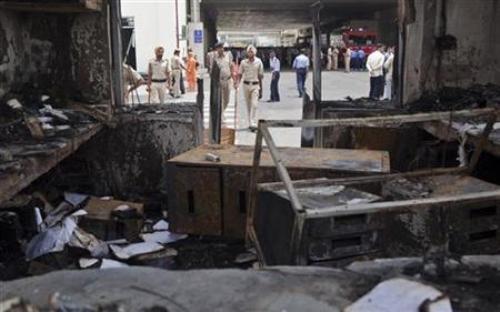
Last year, MSIL's Manesar plant featured lengthy labour protests.
It appears the company's management – which has become increasingly Japanese since 2007 – was not able to sense the problems were not over.
The company's managing director and CEO, Shinzo Nakanishi, told Business Standard that "we did not get any negative indication from the workforce since the wage settlement agreement was signed in October".
Rather than assuming that this means the violence was stoked from outside, the management should introspect as to why communication between it and the company's workers had broken down and that such suppressed anger escaped its notice.
...
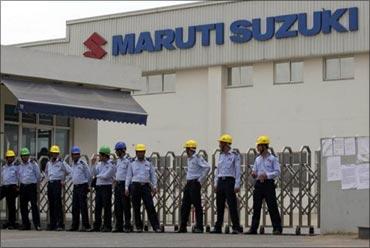
A hint of the hardline approach and carelessness about channels of communication, which are perhaps mistakes, comes in Mr Nakanishi's initial response to the violence, which was to derecognise the local independent union - which was established after much struggle last year.
That MSIL seems to have more labour-relations trouble than competitors which pay their regular workers less should indicate that all is not well.
Like at too many other manufacturing units, India's dysfunctional labour laws mean that regular and contract workers share the Manesar shop floor, doing the same work, but with regular workers being paid almost more than twice as much.
This is not a formula for comfortable labour relations. Yet the new union is one of the few to feature both permanent and contract workers, which perhaps explains why national trade union associations have not chosen to affiliate with it.
This dereliction of duty means that the experience of national trade union organisations was not present to temper the Manesar workers' anger.
...
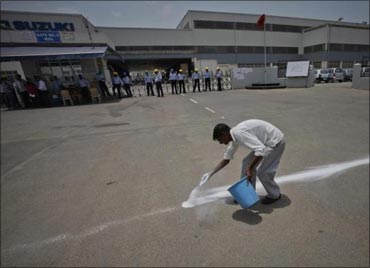
The state, meanwhile, which was supposed to keep an eye on the implementation of a three-way agreement with workers and management last year, took its eye off the ball.
It is also sadly indicative of the lesser status awarded to industrial areas that there was not even a functional fire station nearby.
India's manufacturing scale-up will require not just closer relations between managements, especially of multinationals, and their workers; it will require more attention from the state, more responsibility from the national union leadership, and reform of labour law.